- Home
- Gerald Hammond
Home to Roost Page 4
Home to Roost Read online
Page 4
‘What was Mr Dunbar saying about a high seat?’ I asked.
Sometimes Deborah fails to make allowance for my considerable ignorance of shooting and farming. ‘Just that there’s one in the small wood,’ she said. ‘The place doesn’t have any other name, so that’s how he refers to it.’
‘Remember that you’re talking to an ignoramus,’ I said. ‘What and why is a high seat?’
She looked at me in faint surprise. ‘Roe deer come out of McKimber to feed in the early morning. That’s a favourite place for them. The estate lets the stalking. One of the best ways is from a high seat – which is just what it is – so he put one there. You get a great view from up there and the deer don’t expect anybody to be up high. And they can’t wind you so easily. If he extended the ladder a bit higher,’ she added regretfully, ‘it would make a great pigeon platform. Like the deer, the woodies don’t expect anybody in the treetops, so they either don’t see you or else they think they must be imagining you and they keep coming in. If they see you at ground level they sheer away before they come into range. They’re the most alert and suspicious of birds, except maybe for crows. Let’s move.’
We resumed our burdens and lumbered onward.
At the corner of Middle Wood, we were checked by a barbed wire fence. The wheel tracks turned along the fence and seemed to return along the edge of the stubble on the far side. ‘There’s a gate along there,’ Deborah said, ‘but it’s miles away – a hundred yards at least. We could drop the bags over and walk round or we could hop over. Sam could jump it but dogs sometimes gut themselves that way. I’ll show you a trick that Dad picked up somewhere.’
She took a length of split plastic tubing from one of the bags. While she fitted it over the top strand of barbs I had time for another look around. In front of us was the great tract of barley which had been spoiled by the rain, a sad sight now, ragged and grey. The smaller wood was in sight, perhaps the length of a football pitch away.
The long scar left after the laying of the water main came from my left, dog-legging slightly to make best use of the contours. Digging and laying had progressed since I had looked down from McKimber. A digging machine stood idle where the backfilling ended at about the mid-point of the nearer side of the small wood; and from there the open trench ran on, finishing near the boundary fence and March Strip. Beyond another hundred yards of spoiled barley was the fence, from which the ground rose steeply to the hedge that sheltered the fringe of the McKimber woods. A trailer, evidently stranded by the excavation, stood forlornly against the corner of the wood. I could make out a rough ladder ascending between the evergreen branches.
‘There we are,’ Deborah said. ‘Now you can swing a leg over without castrating yourself. It would be a pity to lose your whatsits before I’ve had the benefit. Over, Sam.’
The Labrador, evidently used to the manoeuvre, jumped on to and off the protected top wire. We dropped the bags over and I followed more carefully. Despite her heavy clothing, Deborah vaulted lightly over.
‘There’s acres and acres of this barley,’ she said. ‘If we stick together, the birds will just plop down at the other end of the field. We’d better split up. Do you want to squat here or take over the little wood until Mr Kerr turns up?’
‘I’m in your hands,’ I said.
No double entendre was intended, but she pretended to recoil like a Victorian maiden. Then she chuckled. ‘You’d better not be,’ she said. ‘I feel a sneeze coming on. Bring your gun and take one of these bags.’
She handed me one bag, picked up another and led me across the field, sticking carefully to a set of ‘tramlines’ left by the tractor. A stile took us over the fence into the small wood.
‘You’re in luck,’ Deborah said. ‘There’s a ready-made hide left from last week. Freshen it up a bit while I put out a pattern of decoys. A few lofters placed upstairs may help to pull them.’ She took three plastic, full-bodied decoys out of the first bag, tucked them into the front of her jacket and turned to the rough ladder which led up to a narrow platform in a mature pine tree. The hide was tucked under a holly and had been made by lacing grass and twigs into the fence. There was even a plastic oil-drum for a seat. I set about pulling up some dead weeds to thicken the screen.
By the time I was satisfied, the three decoys were perched realistically in the treetops and Deborah had descended the ladder and set up a pattern of decoys in the field. The half-shells had looked unconvincing seen close to but, spread out in a natural-looking pattern and bobbing in the slight breeze, they seemed ready to fly off at the first disturbance. Deborah came back to the fence.
‘That should bring a few in to you,’ she said. ‘If you haven’t had any visitors in the first half-hour, pack up and we’ll move you. There are some sandwiches in one of the bags, plus a can of beer in case Brian forgets about the coffee. And there are fifty cartridges. If you need more, come to the corner and wave.’ She looked at me doubtfully. ‘What haven’t I told you?’
‘If I knew that, I wouldn’t need to be told,’ I pointed out.
‘Indeed?’ she said, putting her nose up. ‘What is it that I’m always telling you at the clay pigeons?’
‘Not to keep dancing around but to pivot on the balls of my feet,’ I said humbly.
‘See? You know it but you still need reminding. Don’t spook the birds by moving too soon. If you get any, set them up in natural positions and start taking in the artificials.’
‘What do you mean, “if”?’ I protested.
‘If you can shoot woodies, you can shoot anything. Clay pigeons don’t come suddenly from unexpected angles and jink when they see you. Swing through, take your time but don’t hang about.’
‘And don’t eat with your mouth full,’ I said. ‘All right, Nanny. I’ll be good.’
She put her tongue out at me. ‘I’ll leave Sam with you. You’re more likely to get runners than I am. He’ll know what to do. Cheerio!’
She left me to my own devices. I got out some cartridges and unsleeved my gun – a Browning Citori which Keith had sold me second-hand and, I discovered later, at less than a fair price. Sam settled down on my feet. Until Deborah was out of sight and our presence forgotten, I supposed, there would be nothing to do but wait.
Occasional shots now sounded from far and wide as the local Guns took their places. I was facing roughly south-east with the McKimber woods to my right, and somebody there was firing regularly. In front of me, the scar left by the pipe-laying stretched into the distance; but my view in that direction was partly blocked by the trailer which had been backed against the fence nearby. Middle Wood, where Deborah was installing herself, was out of sight behind my left shoulder and beyond a clump of small firs. After a few minutes I heard her first pair of shots. They sounded more confident than I felt.
In my heart of hearts I did not really believe that real birds would be drawn towards these plastic imitations. It was as if aliens had filled a restaurant with plastic people in the hope of ensnaring a few more. The first arrival took me by surprise. It must have settled in the treetops for a cautious reconnaissance, because it dropped suddenly from above my head and landed among the decoys, strolling unconcernedly about with its head and shoulders showing above the rape. I wondered what Deborah would have told me to do. If I shot it on the ground it would be unsporting and I would certainly pepper some of the decoys.
While I was still wondering, a pair of pigeon circled, eyeing the pattern of decoys. It was time to open my account. I fired twice. All three birds streaked off towards McKimber. Whoever was in those woods fired once and I saw a bird fall. I gave myself a mental kick. I had mounted the gun hastily and then hesitated. Deborah’s apparently contradictory advice began to make sense.
My next six shots went the same way. I was used to clay pigeons, which follow a predictable path. Their live counterpart, I found, were as likely to be accelerating as slowing and had a maddening knack of jinking suddenly just as I pulled the trigger. Also, being larger, their speed
was more difficult to judge.
I pulled myself together, remembered all Deborah’s advice and kept still. A singleton approached. I waited until the last moment, mounted the gun and swung through, and the bird dropped dead among the decoys.
That was it. I had killed. As I had expected, I felt compunction. At the same time I felt a surge of pleasure. The hunter had gathered meat and I was no longer a man apart among the Calders and their cronies.
Nearly an hour later I heard the sound of an engine and the trickle of birds cut off. A Land-Rover turned through the gate and followed the earlier tracks around the edge of the field. Brian Dunbar parked just beyond the filled trench and got out. He peered through my screen of herbage.
‘Brought you some soup and a hot pie,’ he said gruffly. ‘May as well take your piece now. You’ll get no more customers while I’m here. How’ve you done?’
‘Six,’ I said.
He nodded and half smiled. ‘For how many cartridges?’
‘Quite a few,’ I said. I moved my feet to hide the shameful pile of spent shells which had been gathering around me.
‘M’hm.’ He took a paper bag out of a Marks and Spencer carrier bag and handed it to me and then poured me a mug of soup. The bag contained a hot meat pie. ‘I just want to take a look, see whether the ground’s settled or frozen enough to bring that trailer across. Then I’ll leave you in peace.’ He walked off.
His fingers had not been very clean but the pie was delicious and the soup, which seemed to contain every meat and vegetable known to man, was thick and greasy and just what was needed on a frosty day to wash down the pie and a couple of sandwiches.
‘No’ yet,’ Mr Dunbar said on his return. ‘I’ll give it a day or two. No sign of Ian Kerr? This is his place, mind. When he comes, you’ll have to go and join the lassie. I dare say you’ll not object to that?’ He winked at me and got back into his Land-Rover.
While I waited for the birds to start coming again, I filled my pockets with fired cartridges, leaving an acceptable dozen or so by my feet.
The ruse might fool others, but Deborah had been counting my shots. She appeared beyond the fence a minute or two later with a further supply and a barely concealed grin.
I had an hour to myself after that and I began to get the hang of it. I learned to rise quickly and to get my shot off as I reached my feet, before the pigeon could complete its swerve. Soon I was connecting at least once for every two shots. Sam, who had given me up in disgust, roused himself. Whenever I had a bird down that was not stone dead I gave him a nod. I had found another split tube in one of the bags and fitted it over the top strand of barbed wire, but he could clear the fence in a great bound, ignoring the decoys and dead birds and sweeping up my fluttering victim. Despatching a pigeon, I found, was not as easy as Deborah had suggested; I hated it, but that, I supposed, was the rent I paid for an addictive sport.
The sky emptied again, Sam raised his head and his tail moved. I guessed that another human visitor was on the way; but I never heard a sound until Ian Kerr appeared and climbed over the stile.
‘This is your place,’ I said. ‘I’ll clear out.’
‘Dinna’ fash yersel’, laddie,’ he said. His accent was much stronger than it had been in the more refined precincts of the Gun Club. ‘They’ll no’ be coming in to roost yet. That’s when the sport will be at its best. I’ll just sit and look on for a minute.’
He squatted down beside me. Superficially he seemed to be roughly dressed, as men do around farmland, but I noticed that his coat and boots had been expensive. It took me a shot or two before I settled down to shooting beside a more experienced stranger. During the lulls, he chatted in a soft voice, amusingly. He spoke of farming and the weather, and of local personalities; but he never mentioned Brian Dunbar or Allan Brindle by name.
During a lull, I asked him whether he could make a guess as to the identity of the poacher on McKimber Estate.
He chuckled and leaned over to give Sam a pat. ‘Maybe I could,’ he said. ‘But I don’t know that I’d want to clype to the police. Bird over, coming from your left.’
I fired. The pigeon flew on, apparently untouched, for a dozen wingbeats and then dropped like a stone. ‘He’s committing an offence,’ I pointed out.
‘That’s not for me to decide. And now,’ he said, ‘the cushies have stopped moving. They’ll start coming to roost soon. You’d better gather your decoys and get back to the Calder lass. You’re ettling to wed her, some day?’
‘Some day,’ I said.
‘You could do worse. Yes, you could do much worse.’ A sadness in his voice suggested that he had done worse himself.
I picked up the decoys and their sticks, bagged my dead birds and came back to the fence. ‘There are three decoys up in the tree by the high seat,’ I said.
‘Leave them. They’ll do some more work yet. I’ll fetch them down when it’s a’ done.’
The bags were heavier. I humped them back the way we had come and found Deborah picking up her own birds and decoys. She had created a roomy hide by draping a net around some young conifers. ‘Come and join me,’ she said. ‘As the light goes we can move and stand among the trees. How many did you get?’
‘Nineteen altogether. And you?’
‘Forty-something. I should have had more but my fingers were freezing. But you were getting the hang of it,’ she added comfortingly. ‘I could see birds coming down, just before you moved, which you’d have missed earlier. This turned out to be the better place, that’s all. Dad and Uncle Ronnie were having a thin time but they’ll get their share when the birds come to roost.’
I tried not to grind my teeth in frustration.
I heard a shot or two from the vicinity of the high seat, but otherwise all was quiet for the moment. ‘They’re down, having a last feed before they roost,’ Deborah said.
Brian Dunbar returned. His Land-Rover stopped just outside the wood and he got out. ‘Hungry again?’ he asked.
‘Give us a chance, I’m still digesting—’ Deborah began. ‘Keep still,’ she said urgently. Dunbar froze.
Four birds sailed in towards the treetops. Deborah fired twice. Two birds collapsed. The other two streaked off towards the high seat. I heard two more shots. One fell and the other flew strongly towards McKimber only to collapse before reaching the trees.
‘Nice shooting,’ Dunbar said. ‘Keith and Ronnie have only got twenty-two between them so far.’
‘What happened to you?’ Deborah asked me.
‘Each time I got on to a bird, you shot it,’ I said.
‘Well, slap my wrist! Next time, pick the ones on your side of the bunch and I’ll stick to mine.’
‘I’d better get moving,’ Dunbar said. ‘Otherwise I’ll be spoiling it for everybody. I’ll see you again on the way back.’ He re-entered his Land-Rover and I saw it head down towards the smaller wood.
The sun was low. The shadows of the tall trees on the higher ground of McKimber Estate were reaching out towards us and the temperature was falling.
A singleton which had been shot at on McKimber hurried above the fields, saw the Land-Rover, jinked away and came racing towards us. We raised our guns at the same moment but again Deborah fired first, just as the bird jinked again. I was about to take my gun down when I saw that she had missed. I fired, a hasty, scrambled shot, but the bird folded and thumped down in a puff of feathers.
‘Well done,’ Deborah said. ‘That wiped my eye.’ She was more generous than I was, but she could afford to be.
‘Fluke,’ I said.
‘I wish Brian would get a move on. Once the movement to roost starts . . .’
‘Here he comes,’ I said.
The Land-Rover came crawling back but parked at the other end of Middle Wood. From the direction of March Strip a steady thump of shooting came to us. Brian Dunbar approached between the trees carrying a flask and a paper bag.
‘Are you ready yet?’ he said. ‘Coffee and sausage rolls before the real action starts.’
Deborah pulled off her gloves. ‘Just what the doctor ordered.’
‘Here are your three lofters.’ He dropped the decoys beside our bags. ‘Kerr says he’s finished with them.’
‘Thanks,’ Deborah said. There was a pause. ‘Your Land-Rover will be spooking them.’
‘I doubt it. The birds are used to seeing a Land-Rover parked in the fields.’ He held out the paper bag but snatched it back. ‘Over!’
It seemed that he was right. A small flock was circling. As they headed in to roost I remembered Deborah’s admonition. She threw down her gloves. We fired together and two birds dropped. A moment later we heard a shot from Ian Kerr.
‘Well done all three!’ Dunbar said. He was looking towards the high seat. ‘It always surprises me the way you see the bird hit before you hear the shot.’
I looked round but I was too late to see the bird fall. A few feathers hanging in the air at treetop level caught the last of the sunlight.
Dunbar poured coffee. ‘Bring the mugs back to the farm. There’ll be a dram waiting for you when it gets too dark to shoot,’ he said. ‘I’ll get out of your way now, before the action hots up.’
Deborah raised an eyebrow at him. The crackle of shots from the woods around sounded like a minor war. He grinned lopsidedly at her and turned away. ‘Can you come back later and give us a lift back to the car?’ Deborah called after him.
‘I’ll try.’ A minute later we heard the Land-Rover grinding towards the farm.

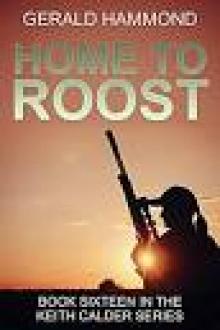 Home to Roost
Home to Roost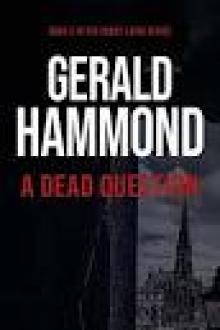 A Dead Question
A Dead Question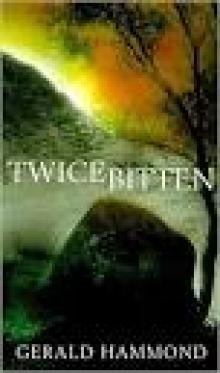 Twice Bitten
Twice Bitten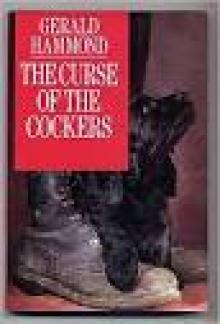 The Curse of the Cockers
The Curse of the Cockers In Loving Memory
In Loving Memory Illegal Tender (Three Oaks Book 12)
Illegal Tender (Three Oaks Book 12) Cold Relations (Honey Laird Book 1)
Cold Relations (Honey Laird Book 1)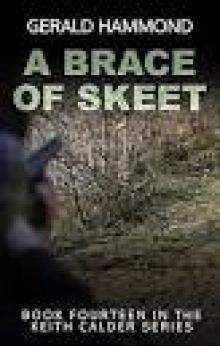 A Brace of Skeet
A Brace of Skeet Silver City Scandal
Silver City Scandal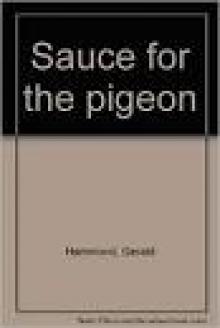 Sauce For the Pigeon
Sauce For the Pigeon Cold Relations
Cold Relations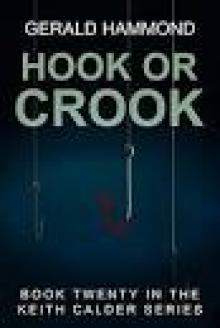 Hook or Crook
Hook or Crook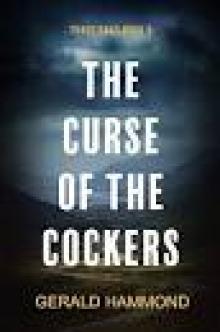 The Curse of the Cockers (Three Oaks Book 5)
The Curse of the Cockers (Three Oaks Book 5)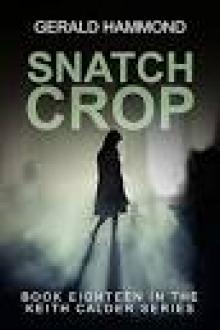 Snatch Crop
Snatch Crop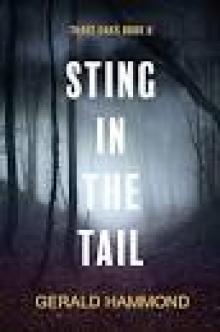 Sting in the Tail (Three Oaks Book 6)
Sting in the Tail (Three Oaks Book 6)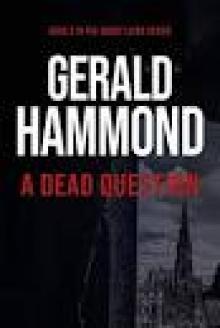 A Dead Question (Honey Laird Book 2)
A Dead Question (Honey Laird Book 2)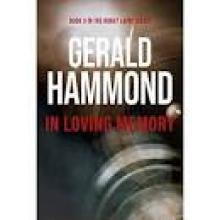 In Loving Memory (Honey Laird Book 3)
In Loving Memory (Honey Laird Book 3) Thin Air
Thin Air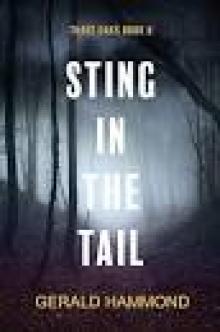 Sting in the Tail
Sting in the Tail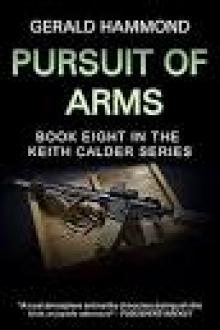 Pursuit of Arms
Pursuit of Arms The Game
The Game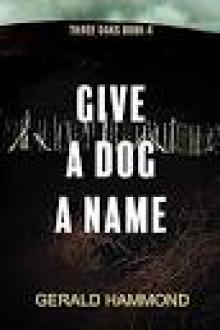 Give a Dog a Name (Three Oaks Book 4)
Give a Dog a Name (Three Oaks Book 4) Fair Game
Fair Game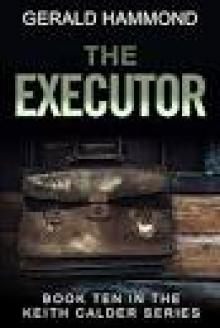 The Executor (Keith Calder Book 10)
The Executor (Keith Calder Book 10) Whose Dog Are You? (Three Oaks Book 2)
Whose Dog Are You? (Three Oaks Book 2)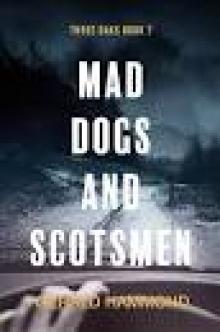 Mad Dogs and Scotsmen (Three Oaks Book 7)
Mad Dogs and Scotsmen (Three Oaks Book 7) Cousin Once Removed
Cousin Once Removed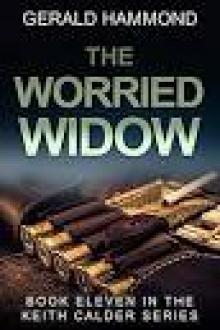 The Worried Widow
The Worried Widow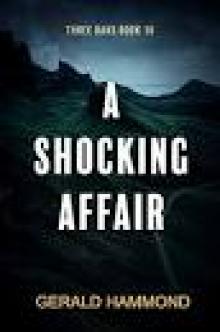 A Shocking Affair
A Shocking Affair Dead Weight (Three Oaks Book 11)
Dead Weight (Three Oaks Book 11) Whose Dog Are You
Whose Dog Are You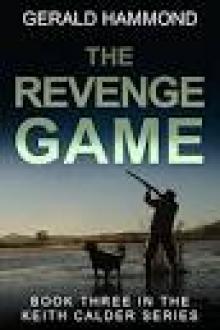 The Revenge Game
The Revenge Game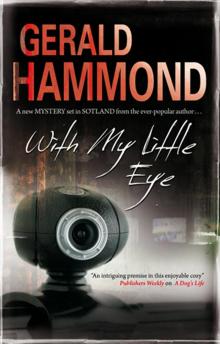 With My Little Eye
With My Little Eye Doghouse (Three Oaks Book 3)
Doghouse (Three Oaks Book 3)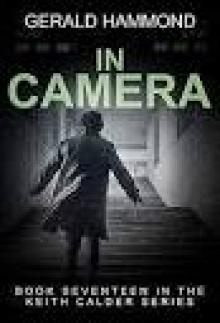 In Camera
In Camera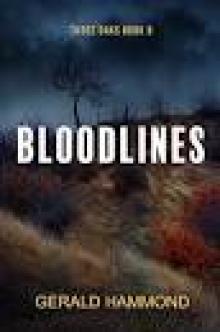 Bloodlines (Three Oaks Book 8)
Bloodlines (Three Oaks Book 8)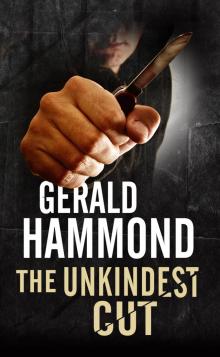 The Unkindest Cut
The Unkindest Cut